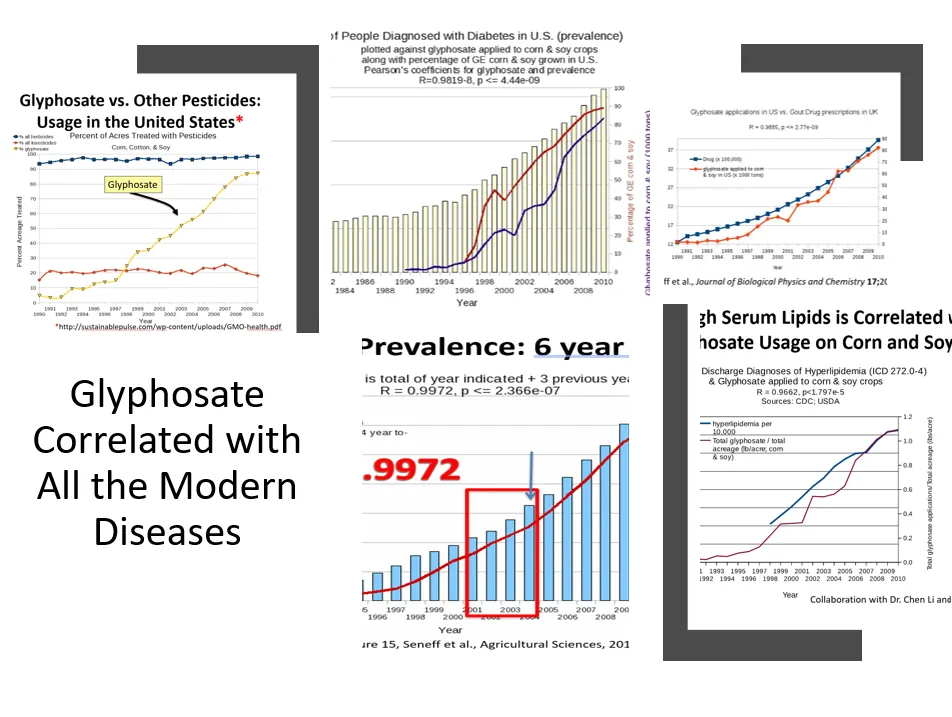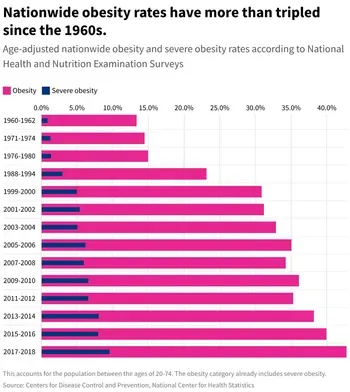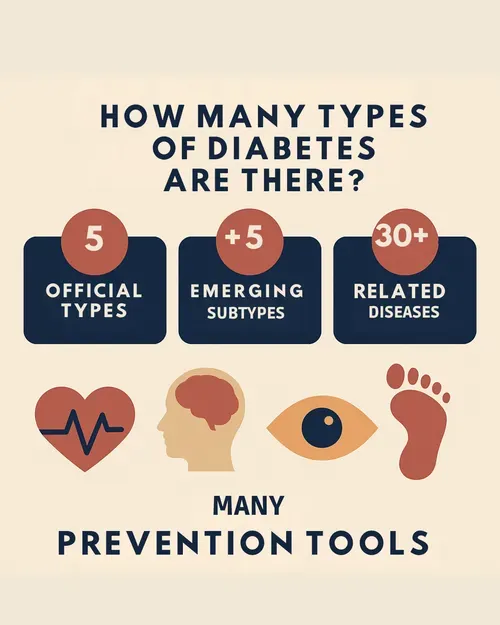The Hidden Epidemic: Insulin Resistance, Obesity, and Metabolic Syndrome
Understanding the Silent Crisis in Metabolic Health
Metabolic disorders like insulin resistance, obesity, and metabolic syndrome are at an all-time high, yet millions remain unaware of the dangers lurking beneath the surface. These conditions significantly increase the risk of type 2 diabetes, cardiovascular disease, and reduced lifespan, making them some of the most pressing health concerns in the modern world.
In the United States alone, obesity rates have soared to over 42%, with 1 in 3 adults suffering from metabolic syndrome. Even more concerning, 98 million Americans have prediabetes, yet more than 80% don’t even know it. Many are living with dangerously high blood sugar levels without experiencing obvious symptoms—until it’s too late.
The Global Landscape: U.S. vs. Other Countries
While obesity and metabolic disorders are a worldwide issue, the United States leads in prevalence. Compared to other developed nations:
- The U.S. obesity rate (~42%) is nearly double that of many European nations (~20–30%).
- Countries with traditional diets (e.g., Japan, Mediterranean regions) have significantly lower diabetes and obesity rates.
- The global diabetes prevalence is 10.5%, but the U.S. surpasses this at 11.6%, with worse outcomes.
The global trends are alarming, with rising obesity and insulin resistance now impacting developing nations, particularly those adopting Western dietary habits.
The Root Causes: Why Are We Facing an Epidemic?
Metabolic syndrome and insulin resistance are driven by a complex interplay of lifestyle, diet, and environmental factors:
🔥 Poor Diet Choices
- Excessive consumption of refined carbs, sugar, and processed foods drives insulin resistance.
- Unhealthy fats (trans fats, industrial seed oils) worsen inflammation and metabolic dysfunction.
- High meat consumption, especially processed meats, has been linked to increased insulin resistance.
🏃 Lack of Physical Activity
- A sedentary lifestyle reduces insulin sensitivity, making blood sugar harder to control.
- Desk jobs, long commutes, and excessive screen time contribute to a decline in physical activity.
😰 Chronic Stress & Poor Sleep
- Elevated cortisol levels (from stress) worsen blood sugar spikes and lead to fat accumulation.
- Sleep deprivation disrupts metabolism and increases cravings for sugary, high-calorie foods.
🌍 Environmental & Socioeconomic Factors
- Food deserts and the affordability of processed foods make healthy eating challenging for many.
- Endocrine disruptors in plastics, pesticides, and pollutants may contribute to metabolic disease.
The Consequences: A Shorter, Unhealthier Life
Without intervention, obesity and insulin resistance can shorten lifespan by 10–20 years due to increased risk of:
✅ Type 2 diabetes – leading to kidney failure, nerve damage, and amputations.
✅ Heart disease & stroke – the #1 cause of death globally.
✅ Alzheimer’s disease – often called "type 3 diabetes" due to its link with insulin resistance.
✅ Fatty liver disease – now one of the most common liver disorders.
How to Reverse Insulin Resistance & Metabolic Syndrome Naturally
The good news? These conditions are largely preventable—and even reversible—with the right strategies.
🥑 Adopt a Metabolically Friendly Diet
- Prioritize healthy fats (avocado, olive oil, nuts, seeds) to stabilize blood sugar.
- Choose low-glycemic foods like leafy greens, non-starchy vegetables, and whole foods.
- Reduce intake of processed carbs, added sugars, and industrial seed oils.
🏋️ Move More & Reduce Sedentary Time
- Aim for 30–60 minutes of moderate exercise daily (walking, strength training, yoga).
- Break up long periods of sitting with movement breaks throughout the day.
🧘 Manage Stress & Sleep Well
- Practice stress management techniques like meditation, deep breathing, or journaling.
- Aim for 7–9 hours of quality sleep to support hormone balance and metabolic health.
💊 Consider Supplementation & Holistic Approaches
- Magnesium, omega-3s, and berberine have shown benefits for insulin sensitivity.
- Herbal and Ayurvedic practices can help balance metabolism naturally.
Take Action: Your Metabolic Health Matters
Metabolic syndrome, insulin resistance, and obesity are not just personal health issues—they’re a global crisis. The sooner we take control of our diet, movement, and stress levels, the better we can prevent these conditions and extend both lifespan and health span.
📢 Share this with someone who needs to hear it!
Let’s create a healthier future together.
Final Thought
If this sounds like your story, I see you. I believe you. And together, we can demand better.
🔥 Let’s stop normalizing suffering in silence. 🔥
About the Author
 Karin Collinsworth is a Public Health Advocate, Holistic Health Coach, and R_EYT Yoga Therapist with over 40 years of experience navigating Type 1 Diabetes, metabolic health, and longevity. She’s passionate about helping others stabilize blood sugar, prevent complications, and age vibrantly—all while integrating mindfulness, yoga, and nutrition into daily life.
Karin Collinsworth is a Public Health Advocate, Holistic Health Coach, and R_EYT Yoga Therapist with over 40 years of experience navigating Type 1 Diabetes, metabolic health, and longevity. She’s passionate about helping others stabilize blood sugar, prevent complications, and age vibrantly—all while integrating mindfulness, yoga, and nutrition into daily life.
🐶 She also specializes in training blood sugar alert dogs to help diabetics manage their health more effectively!
🌱 Join the journey: Linktree.com/Karin_C
Sources:
- Centers for Disease Control and Prevention (CDC) – National Diabetes Statistics & Obesity Data DIABETES.ORG CDC.GOV BLOGS.CDC.GOV
- National Institutes of Health & NHLBI – Metabolic Syndrome and Obesity Facts NHLBI.NIH.GOV NHLBI.NIH.GOV
- “Causes and Risk Factors.” 2025. National Heart Lung and Blood Institute. U.S. Department of Health and Human Services. Accessed March 8. https://www.nhlbi.nih.gov/health/overweight-and-obesity/causes#:~:text=Some%20unhealthy%20eating%20behaviors%20can,risk%20for%20overweight%20and%20obesity.
- World Health Organization – Obesity and Overweight Fact Sheet (2024)WHO.INT WHO.INT
- International Diabetes Federation – IDF Diabetes Atlas 2021IDF.ORG
- “Statistics About Diabetes.” 2025. Statistics About Diabetes | ADA. Accessed March 8. https://diabetes.org/about-diabetes/statistics/about-diabetes#:~:text=,diagnosed%20with%20diabetes%20every%20year.
- Comparative international data (Commonwealth Fund, OECD, IDF)COMMONWEALTHFUND.ORG
- ENDOCRINENEWS.ENDOCRINE.ORG
- Published research on trends and causes CDC.GOV
- BUSINESSINSIDER.COM
- https://chatgpt.com/
















